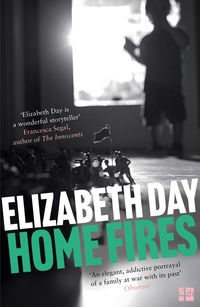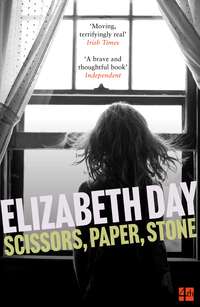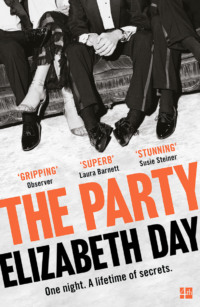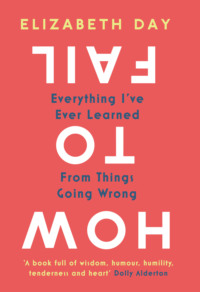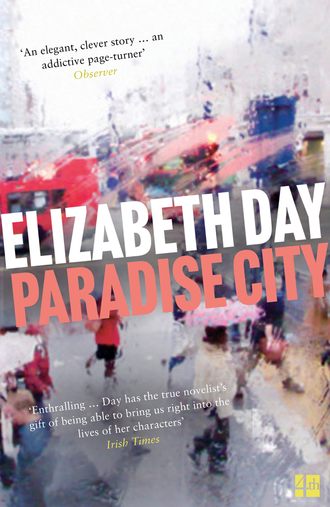
Полная версия
Paradise City
‘It’s not safe for both of you to go at the same time,’ the trafficker had said, chewing on one end of a cocktail stick. He had grubby fingernails and wore a T-shirt with the sleeves ripped off. ‘One of you only. The other will follow.’
They’d had no choice. Susan squeezed Beatrice’s hand.
‘You go,’ she said. ‘I’ll follow.’
‘But …’
‘You’re ill. You should go first.’
Beatrice was still recovering from the effects of the police beating. Her back was pitted with sores. The cuts on her arms were not healing. The corner of one eye was still tender from a brutal punch.
If she had been stronger, more like herself, she wouldn’t have let Susan stay behind on her own. She would have thought of something to keep the two of them together. Because what was the point of any of it if they were separated? Why had they fought so hard if they were going to end up alone?
They couldn’t be together in Uganda. They’d be arrested or murdered before the year was out.
‘Devil-child’, that’s what Beatrice’s mother had called her.
Her own mother.
She’d looked her eldest daughter in the eyes and said it.
But by then, Beatrice hadn’t cared, had only had space in her head for thoughts of Susan. She’d been obsessed, crazed. And Susan … she had been in love with her too, of that she was sure. And yet … she’d never followed her to London.
They’d made a plan to meet outside Buckingham Palace, which was silly looking back, but it was the only landmark they could be sure of. On the appointed day, Susan hadn’t come. For twelve hours, Beatrice had waited in the drizzle, hugging her too-thin coat closer with every passing minute, not wanting her teeth to chatter. Her toes had grown numb, her legs ached with standing but, almost from superstition, she refused to move. She would not shift from her spot by the dour-looking statue of Queen Victoria, facing the gates and the flag, where they’d agreed they would find each other. She told herself that, if she moved, even just an inch to the left or right, Susan wouldn’t come. She made a deal with God in her mind: if I stand here, stock-still, for another hour, Susan will appear.
Beatrice waited until all the tourists had dispersed and the light had changed from rosy pink to sludge-grey and then slipped into dark blue dusk. Still no sign of her.
She’d gone back the next day and the one after that, thinking to herself that Susan must have got delayed or confused or was trying desperately to get a message to her and that she should be there, just in case, to welcome her to this strange city. She should be there, as promised, to prove her love.
But Susan never came. The drafts folder in the email account they’d set up in case either of them needed to communicate remained resolutely empty. Days, then weeks, then months and Beatrice never got word from her. Something must have gone wrong. The trafficker had gone back on his word. Her family had found her and dragged her back to Uganda against her will. Or she’d been taken by the authorities and thrown into a detention centre and it was only a matter of time until they were reunited. Surely that was it? Surely there was some sense to everything they had been through, some reason why?
Beatrice turns away from the photo. It is not good to think like this. Too many futile thoughts and she will become depressed again and when she is depressed, she cannot work, cannot so much as crawl out of bed for fear of the sky collapsing on her and the heavy grey clouds pinning her to the floor. When she gets like that, everything acquires a new, horrifying edge. The world around her sweats with an alien light. Buildings and roads and cars slough off their skins and become unfamiliar beings and Beatrice can’t leave the flat through sheer terror of what she might find on the other side of the door.
She must not let that happen. She needs the money to survive. She needs to buy an iron.
She brushes her teeth thoroughly, splashes soap and water on her face, then gets into bed. Something crinkles under her pillow and, when she slides her hand underneath, she realises it is that weekend’s paper. She’d picked it up on a bus for the TV listings. Beatrice throws it to the floor. The pages fly open and a photograph catches her eye, along the bottom of page seven.
Her gaze snaps into focus. It is the man from Room 423. He is much younger in the picture but she recognises his piggy little eyes and florid cheeks. Beatrice props the paper up on her knees to read it more closely. It is an article about optimism written by a girl called Esme Reade and the photograph caption identifies the man as ‘self-made millionaire’ Sir Howard Pink.
A millionaire, Beatrice thinks. She narrows her eyes. He should have paid her.
Howard
Howard had bought Eden House in the mid-1990s, as London property prices were rocketing skywards and when just about anyone with a 5 per cent deposit could find themselves with an interest-free mortgage and a substantial duplex in Chelsea before the day was out. Eden House was a sprawling Victorian-era mansion behind High Street Kensington, built for a painter Howard had never heard of, at a time when moneyed bohemians liked to believe they were re-creating a pastoral idyll in the heart of the city. Luther Eden had aspired to be William Morris but had never quite made it. All that was left of him was a garish oil painting full of impasto brushwork and overenthusiastic representations of hellfire, hung in an ignored corner of Tate Britain.
As a result of Eden’s arts and crafts fascination, the house was set back in a large walled garden and dotted with stone-carved representations of forest nymphs and sprightly animals every which way you looked. A goat, curled in on itself with a dazed expression, was to be found at the intersection of a piece of guttering. A charming elfish figurine, complete with a quiver of arrows, peeked out humorously from beneath the window ledge of one of the first-floor bedrooms.
Inside, the house was a mess: higgledy-piggledy staircases, winding this way and that like a drunken Escher sketch, and leading to dozens of small rooms which Howard had attempted to knock through only to be told it was structurally impossible. The saving grace was the room on the top floor, once Eden’s studio, which had double-height ceilings and windows on three sides. Howard promptly converted it into the master bedroom, insisting that a four-poster bed with purple velvet swags be placed on a specially constructed platform in the centre of the room, much to the horror of the chi-chi interior decorator he’d hired who called the idea ‘de trop, Sir Howard, de trop’.
‘Darling, I am de trop,’ he’d replied. ‘Hadn’t you realised that?’
It is in this cavernous bedroom that Howard now sits, watching the Formula 1 racing on a giant flat-screen television that slides in and out of a plumply upholstered stool at the foot of his king-size bed. The detritus of his breakfast lies on a tray beside him: slivers of orange flesh lining an empty glass; a white linen napkin smeared with brown sauce; a rind of bacon on a glistening china plate (today is a non-kosher day, Howard has decided). He presses a button on the wall to get someone to clear it away.
As he does so, the phone on the console table at the side of the bed starts to ring.
‘Yep,’ Howard says, picking it up, eyes still trained on the screen.
‘Good morning, Sir Howard,’ says Tracy, her voice trilling. ‘And how are we today?’
‘Fine, fine.’
‘Just to remind you, Sir Howard,’ she continues, ‘that you have a charity luncheon.’
‘Fuck.’
Tracy lets the swear word pass. After twenty-odd years, she knows him better than most people. She laughs lightly.
‘I’ve told Jocelyn to have the car ready for 12.30.’
Howard glances at his Cartier. It is already 11.45.
‘Fuck.’
‘We discussed it last week, you remember,’ Tracy says, assuming the manner of a patient nanny. ‘It’s Action for Elephants. Imelda’s charity.’
‘Elephants?’ says Howard, incredulous. ‘Why the fuck do we care about elephants?’
Tracy replies as though he’s asked something incredibly insightful. ‘It’s a pet project of hers, Sir Howard. She went on holiday to Kenya and was moved by the plight of these – hang on, let me get the wording right –’ There is a rustling of papers on the other end of the line. ‘Ah yes, that’s it, “These beautiful and noble masters of the earth”. She’s got all her family involved – you remember, the Wallis-Parkers. Descendants of the man who founded the London Stock Exchange, I believe. They’ve got a granddaughter who’s a model, always on the front of Grazia – you know the one, I’m sure. You’d recognise her if you saw her anyway.’
‘Christ.’
‘The point being, Sir Howard, that Imelda knows everyone worth knowing,’ Tracy concludes crisply. And then, a touch more coldly, she adds, ‘Has Claudia remembered?’
Tracy and Claudia don’t get on. Claudia thinks Tracy is patronising and dowdy – a fatal combination. Tracy believes Claudia to be little better than an ageing tart with pert breasts (fake) and pound signs in her eyes (lasered).
Howard thinks they both have a point.
‘I’ll tell her,’ Howard says.
‘Also, Rupert’s asked me to get you to call him about setting up lunch with a journalist from the Tribune. He said you’d know why.’
‘Thanks, Tracy.’
‘Not at all, Sir Howard.’
He puts the phone down and feels a stirring in his nether regions. There’s always been something about Tracy, with her buttoned-up manner and clipped efficiency. She’d be a challenge, Howard thinks, unlike most women. Yet he’s never been brave enough to follow this thought through, perhaps because he knows the fantasy Tracy (voraciously available once you’ve mussed up the neatly bobbed hair) is more sexually appealing than the real one. And he’s intimidated by her too, if he’s honest. Nothing like a woman’s self-evident superiority to make your cock shrivel to the size of a deflated balloon.
He groans as he levers himself out of bed and pads across to the dressing room to put on a Paisley silk robe. He goes downstairs to try and find Claudia but after a futile few minutes, peeking in and out of half-hidden sitting rooms and squeezing his cumbersome frame through narrow passageways leading nowhere, he feels his impatience rising. The house had seemed so charming when Howard bought it. He’d believed it embodied a shambolic, semi-aristocratic way of life, unlike all those dreadful new-build mansions in Essex everyone expected a man like him to buy. But, after two decades of living here, he finds himself lusting after the clean lines of a modern house with a double garage and excellent central heating. He knows now that the business of acquiring good taste, as represented by Eden House, means comfort must sometimes be sacrificed. Still, he wishes he hadn’t bought the house purely on the basis of it looking like something out of a period drama. Howard has learned, through the years, that what he thinks looks nice is almost always the wrong instinct to pursue.
He includes his second wife in that.
‘Claudia!’ he bellows.
One of the Filipino maids scurries towards him and whispers discreetly that Lady Pink is in the gym before scurrying off again, duster in hand. He should know their names but Claudia gets through staff so quickly he loses track. Howard, wheezing, walks all the way down to the basement where he finally finds Claudia sitting, legs akimbo, feet pressed into cable handles that are attached to tightly stretched wires emerging from a space-age piece of equipment that looks like a shaking treadmill.
‘What the fuck are you doing?’
Claudia grimaces at him. Her dyed blonde hair is tied up, revealing an expressionless forehead smooth as eggshell thanks to regular injections of botulin administered by one of the most sought-after dermatologists in London.
‘Powerplate,’ she says, her voice vibrating, the tremors reminding Howard of a colleague who has just been diagnosed with early onset Parkinson’s. ‘It’s good for toning up and core strength. You should try it.’
‘No thanks.’ He looks at her, taking in for a moment the slinky lines of her legs, the unnatural buoyancy of her breasts under black Lycra, and he feels nothing. He analyses this lack of sensation and is depressed by it, by the recollection of how passionate he used to be, how crazy she used to make him. The mere sight of her red-lacquered fingernails around a champagne glass stem had been enough to send him into paroxysms of sexual obsession.
He’d met her at a vulnerable time, of course. Ada had just gone missing and his marriage to Penny, his first wife, was showing the strain. You couldn’t ever recover, as a couple, from something like that, from the hopeless uncertainty of unanswered questions when your only child goes missing.
All the police could tell them was that Ada, their beautiful, edgy, neurotic nineteen-year-old daughter, had walked out of her halls of residence at Birmingham University one Friday evening in February 2001 never to be seen again. That was it: the slender filament of knowledge they’d been left with after weeks and months of fruitless searching.
There had been a thorough investigation. Even now, eleven years on, Howard gets queasy thinking about it. The questions. The interviews. The fingerprints. The murky cloud of suspicion that hovered over the parents, no matter how obvious their devastation. The constant harassment from the press: phone calls, door-knocks, carefully worded entreaties pushed through the letterbox. He’d hired private detectives – eight of them, through the years. He’d spoken, personally, to her friends, lecturers, ex-boyfriends. He’d travelled up and down the country looking for something without knowing what. He’d taken the best part of a year off work. He couldn’t sleep, was drinking too much, jumped at the sound of a door slamming.
Penny wanted him to see her therapist, said he was showing all the signs of post-traumatic stress and that he needed help. Howard ignored her. He didn’t want to get better. He wanted to pick away at the wound for the rest of his life. He felt, in a way he realised was illogical, that this was what he deserved.
No one knew anything about what had happened to Ada that night. Or if they did, they weren’t letting on. There had been rumours of drug-taking and petty crime: a patched-together picture of their daughter that neither Howard nor Penny recognised. The police found tin-foil wraps and teaspoons burned brown in Ada’s room. One night, he’d looked up heroin on the internet and the resulting information had sent him into a dark spiral of depression. It was the closest he’d come to suicide.
After a while, he had to ask himself whether it was worth pursuing such hurtful lines of inquiry. Wasn’t it better, if Ada was never coming back, to remember her as they knew her? To remember the serious little girl who had to kiss each one of her teddies goodnight before she went to sleep.
Or the dark-eyed seven-year-old in a brown school uniform, her front teeth missing, rucksack straps worn sensibly over both shoulders.
Or the teenager who’d looked at him once across the kitchen table and asked, ‘Dad, what did you do in the war?’ and when he roared with laughter and said he hadn’t even been born, she’d blushed all the way from the base of her throat to the tip of her hairline.
The girl on her father’s knee, laughing uncontrollably as he tickled her, pleading with him to stop.
Because if they didn’t have memories, if they could no longer believe their cherished girl was who they thought she was, then what were they left with?
There were bleak times, now, when Howard thought it would have been easier to cope with had there been a body to bury, a focal point for their grief. As it was, he and Penny were left in limbo, increasingly unable to bear the sight of each other because it reminded them of the gaping hole in their hearts, the absence that could never be named, the loss that could never be laid to rest.
The decision to divorce was mutual. He’d met Claudia by then and his affair with her had been a deliberate, doomed attempt to counteract profound unhappiness with its antidote of undemanding superficiality. His lust for Claudia had always, peculiarly, been grounded in hatred for all that she stood for. He needed her brittleness, her dead-eyed ambition, her naked desire for status and wealth, as affirmation of what he had always suspected of himself: that he was worth no more, that if you drew back the curtain there was nothing there but a small boy, threading a needle, afraid of being found out.
Shortly after they’d got married at Chelsea Register Office, Claudia had encouraged him to pack away all of Ada’s belongings. He’d been keeping his daughter’s room like a shrine and would sit there in the evenings, as if inhaling the dust could bring him closer to the air she had breathed. The air she might still be breathing, for all he knew.
Claudia had been right that it was time to move on. She was a hard woman and, for a while, Howard found himself latching gratefully on to her unsentimentality as though it were a life-raft that would bring him, at last, to the edge of the wild ocean. But it hadn’t. He’d simply grown more distant from his second wife with every box of Ada’s belongings he packed and put into storage. He’d closed off his memories and shut down his thoughts one by one. Thinking, he realised, was too dispiriting. The only time he allowed himself to dwell on his grief and indulge his unhappiness was once a month, at the Mayfair Rotunda Hotel, when his bottled-up sadness made him act in unpredictable ways, surprising even to himself.
At the age of sixty-five, he had discovered a taste for grubby sexual encounters. Sometimes, he thought, the only way to forget about love was to bury it in spadefuls of self-loathing, to make oneself ultimately unlovable, to ensure one’s soul was inviolate. It would surprise almost everyone who knew him that Howard had such thoughts.
The exercise machine beeps and the humming vibrations halt abruptly. Claudia wipes a sheen of sweat from her brow and takes a long sip of water from a bottle of Evian, eyes closed, the lashes coated with several layers of black mascara.
‘Have you remembered we’ve got this charity lunch?’ Howard asks. ‘Imelda’s elephants.’
‘Yes, Howie.’ She raises her eyebrow patronisingly. ‘Have you?’
He ignores her. ‘Jocelyn’s coming with the car at 12.30.’
‘Great. I’ll slip into something less comfortable.’ She saunters across to him and plants a light kiss on his nose. ‘You should wear that tie I bought you. The green one.’
‘All right, sweetheart,’ he says, pacified by her brief show of attentiveness. He pats her on the bottom. Her buttocks are as hard as an overcooked piece of steak. ‘See you in a bit.’
Howard wends his way slowly back upstairs, his lungs getting tighter with each step. He must cut back on the cigars, he thinks. He should take a leaf out of Claudia’s book and try to get healthy.
When he gets to the bedroom, he sees the breakfast tray has been removed, the bed neatly made. Propped up against the pillows is a small white bear, paws sewn onto a red heart embroidered with the words: ‘I love you Daddy’. It is the only thing of Ada’s he could not face packing away.
Esme
‘Where are you off to?’ Sanjay says, sitting up straighter at his keyboard so that the top half of his head is visible over the Mac screen. His eyebrows are looking especially well groomed and Esme wonders if he’s had them waxed. Automatically, she runs a finger over her own unruly brows. They are due a plucking but she just hasn’t had time this week. She’s been frantically dealing with the fall-out from the nudists piece: dozens of complaints from assorted Women’s Institutes, cider-pressing clubs, donkey sanctuaries and the Malvern Link Fire Brigade, all of whom are eager to put the record straight about the good work achieved by sales of naked charity calendars.
Online, a vociferous war of words has broken out between anonymous commenters, one of whom has called for the boycott of the newspaper: ‘Until such time as the editor of the Tribune takes down this pornographic filth and signs a pledge never to post such images again where they can be seen by children or adults of a vulnerable disposition. I, for one, will be cancelling my subscription.’
This comment alone attracted forty-three ‘Recommends’. Below it, someone calling themselves ‘Satansrib’ has added: ‘I stopped buying the paper years ago. Too many darkies in the news pages for my liking. Political correctness gone mad.’
Another calling themselves ‘Arafat2000’ has expressed their opinion that the popularity of nude charity calendars is a symptom of some obscure Zionist conspiracy involving WikiLeaks and the failed extradition of Julian Assange.
Esme sighs. She knows she is meant to embrace reader interaction, but the thought of it makes her depressed. When she first started on newspapers, it was fairly easy to ignore the green-ink obsessives: those twenty-page letters from readers detailing government attempts to assassinate them through secret radio-waves emitted from television aerials and packets of aluminium foil. Nowadays, everyone spewed forth anonymously online and the resulting bile was left for ever suspended in the ether of cyberspace. There is one man – she assumes it is a man – who keeps posting that he’s heard ‘from friends in the media that Esme Reade only got where she is today on her knees’. She’d spoken to Dave about it and he’d been unexpectedly sympathetic and told the online moderators to take it down.
‘Don’t let it get to you,’ he said. ‘You’ve got to have a thicker skin.’
Which is true, of course, but she can’t help taking things like that to heart. When she told Sanjay, he’d bought her a latte. ‘If you’ve only got you this far, you’re obviously rubbish at giving head,’ he said, which made her laugh.
And then there’s all the social networking you’re meant to do. Real-life networking is bad enough: tepid white wine and exchanging business cards over the chicken satay skewers but now they’ve all got to be on Facebook and LinkedIn and editing sixty-second Instagram videos to ‘go viral’ and ‘get more page hits’.
‘You need to develop your own brand,’ the marketing department had told the Tribune newsroom during one of their god-awful ‘Multi-Platform Future’ briefings, hastily convened to introduce a dwindling group of weary old hacks to the idea of an iPad app and ‘data-blogging’.
She has only just set up a Twitter account and is baffled by what to do with it. Reducing the entire day’s news to a series of 140-character bullet points seems to her to be an exercise in pointlessness.
‘I’m taking Howard Pink to lunch,’ she tells Sanjay, buttoning up her jacket, bought from the L.K.Bennett sale two years ago and still wearing well.
‘Ooh, anywhere nice?’
‘Alain Ducasse at the Dorchester.’
‘Blimey,’ Sanjay says, sputtering on his coffee. ‘I thought that kind of wining and dining went out with the Ark. Who are they going to sack to finance it, one wonders?’ He slumps back behind his screen. ‘Well you enjoy it while you can. Some of us have real work to do,’ Sanjay adds with a meaningful twist of the mouth.
He’s joking, of course, but Esme wishes he didn’t always make her feel like such an amateur. Walking out into the atrium, she takes out her BlackBerry and logs on to Twitter. ‘Off 2 lunch,’ she types with her thumbs. 129 characters remaining. She chews her lip. ‘Meeting Sir Howard Pink.’ 104. ‘Hoping to persuade him to give me Fash Attack discount card!’ She hates exclamation marks as a rule but Twitter seems to require this kind of enthusiastic repartee. She still has 44 characters left and supposes she should add in some smiley-faced emoticon or semi-ironic hash-tag but she can’t be bothered. She presses down with her thumb and sends the Tweet.
In truth, she wouldn’t mind a Fash Attack discount card. Sir Howard’s chain of teen clothing stores has gone from strength to strength in recent years, after ingeniously persuading top-end designers to collaborate on cheaper ranges for the mass market. The one they’d done with Dolce & Gabanna had sold out in under twelve hours. There were pieces on eBay for triple the asking price within minutes of the doors opening on High Street Ken.



